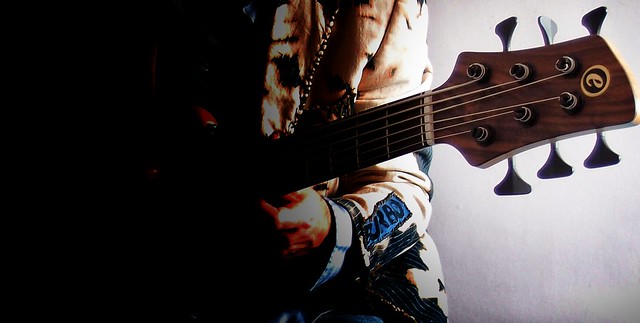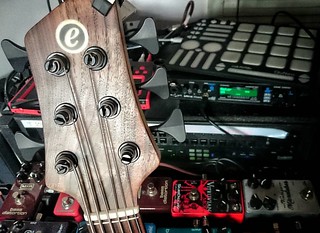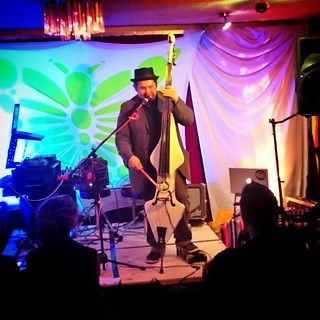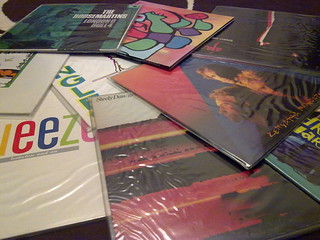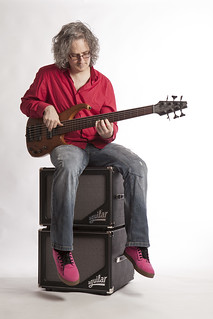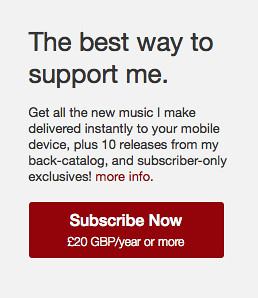[this is long and sweary – grab a cup of coffee, and strap yourselves in]
First up, read this Gawker Mansplainer post – it’s a very eloquent and funny exposition on the problem we’re exploring here.
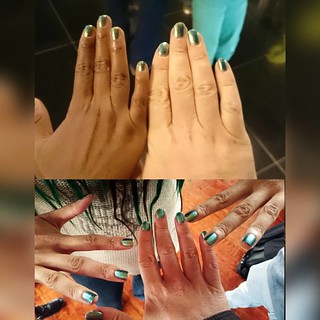 Which is what? Which is, the way musicians who are women are often treated and talked about in the music industries. While we’ve made a whole load of progress on gender equality, and there are now so many amazing women playing every imaginable instrument at the absolutely highest levels, we STILL have an issue…
Which is what? Which is, the way musicians who are women are often treated and talked about in the music industries. While we’ve made a whole load of progress on gender equality, and there are now so many amazing women playing every imaginable instrument at the absolutely highest levels, we STILL have an issue…
The root of the issue seems to me to be that for a large number of men in the industry, the women that work in it too are first divided into one of two categories – fuckable or unfuckable. That’s the line. If you’re not hot, you’re ignored. If you are hot, then the purpose of any interaction, ultimately, is to try and get laid. There seems to be pretty much no acknowledgement of just how insanely toxic a notion that is for both the personal and professional life of the women involved, or indeed any consideration of the social and professional consequences of that, when guys end up trading stories of who they’ve slept with, and those women end up being ‘trouble’ on a session or tour because of past relationships, and get sidelined. And it’s ALWAYS the woman who gets sidelined. Bros before Hos, right? If you’re an amazing guitar player who slept with an OK drummer but it’s the drummer who’s the dude? Sorry, we’re going to get a new guitar player, cos there’ll be weirdness on the tour bus.
So, for the women who choose – for personal or professional reasons – not to have any kind of relationship with the musicians they work with, they become a conquest. And bets are had over who’s going to bed her first. Or rumours start, because hey, who could resist hanging round with a bunch of delusional wannabe rock stars, eh? She’s got to want to fuck one of you!
And what if the woman actually does want to have some fun? If no strings sex sounds like a great way to go? That’s not a choice that’s available. For the aforementioned professional reasons.
Observation: there’s no male equivalent of a slut, and no female equivalent of a playa. Men are rewarded for promiscuity, and women are punished for it, in every way.
But, I get told (and I DO get told), she looks so great! Anyone dressing that fine must be out for the attention. She laughs when I ‘jokingly’ tell her what I want to do to her. She’s one of the guys, it’s all funny…Well, it can be funny – I know some women with a way cruder sense of humour than me, that love crass jokes…But when it’s relentless? When it’s the only thing that’s ever joked about? When joking turns into being groped? It ceases to be funny. But, if she wants to get hired, she’s got to play along. And she HAS to look amazing. Because if you end up back in the unfuckable category, you’re ignored.
This happens pretty much every time I’m talking to a woman at a music event:
We’ll be sat talking about music, life, family, touring, stupid shit, whatever…
And some dude will come up and say ‘excuse me, I have to tell you that you’re so beautiful.’ blah fucking blah…
And my friend will smile and say thank you…
And dude will push it, and go on…
And eventually – hopefully – realise this is not their conversation and fuck off…
And nothing will be said about the person’s music or art, no attempt to engage with them as a fellow professional will be made. Just some bullshit attempt to ‘reward’ them with attention for how they look. Like somehow having creepy dudes going on about how hot you are and staring at your boobs was part of your career plan when you spent 8 hours a day learning your instrument, or 70 grand of your own money to get through 4 years of university to become the best musician you could be.
But then, it gets worse. And the playing bit of the event is also built around a peculiarly male obsession – that ridiculously competitive, chops-heavy, zero-sound-design, melody-free world of the fusion bass jam. where a bunch of guys trade ever more elaborate reharms over an E minor vamp. And someone quotes Coltrane, and someone does a bunch of clever arpeggios. And if you’re not the kind of player who wants to spend years and years of your life training for the bass olympics, you’re out.
I’m obviously way outside of that world for another reason – my gear takes way to long to set up! This is the world of plug and play, a line of generic amps that give just enough midrange for everyone to battle it out… But it’s cool. I get a million other outlets and while I’m listening to this rutting ritual take place, no-one is stood next to me trying to feel my arse without getting caught.
And there are SO few women who can be bothered with this doleful charade. There are a few who can hang in that world, some who love it. But for the most part, the women I know in music are song players, writers, arrangers, producers – people who tell stories and put together the whole deal. Who care about sound design and things sounding good not just being metrically observable as faster or more complex than everyone else while 4 instruments battle or the same single octave span in the sound spectrum.
Why does this matter? Because it’s all about boxing in people’s options. It’s a social structure that has women watching men battle. It’s as old as dinosaurs puffing up their crests to see who has the biggest one and can pull the lady dinosaurs.
And it’s bullshit. This doesn’t mean you can’t dig bass jams. This is not a value judgement about being a part of that. It’s about acknowledging that narrowness of the social situation and how it impacts on the visibility of the talents of women vs the ‘value’ of their presence as eye-candy.
And let’s face it, everyone likes to look good. That’s not about wanting it to be the only thing that gets talked about. We want to look our best, because we’re on show. We’re entertainers, FFS!
Observation: I get to see a teeny-tiny-miniscule bit of what women put up with whenever a YouTube thread is taken over by some messed up angry-dude discussion about my nail varnish.
But the difference? The massive difference: I have options. I can choose to not wear nail varnish and pink shoes, to leave the wizard coat at home. I don’t suddenly become invisible. I like to look my best but when I’m too tired, it’s all cool. I have agency over my choices and they won’t negatively impact my career. For women? That’s very very often not the case. At all.
So, here’s why I never talk about the way my friends look – because I wouldn’t do that for a dude.
If you talk about the way men sound and the way women look, you’re an asshole.
If you compliment men on their choice of notes and women on their choice of neckline, you’re an asshole.
If you choose the guys you jam with because of their groove, but the women because you think you might be in with a chance, you’re a predatory shithead.
As human beings, we rely on music to tell the story of who we are. Music has done that for millennia. It’s part of our documentation. If we shut down the role of women within that, if we silence them and just make them part of the visual landscape, or fit their story-telling into the whims of the male gaze, the stories we’re telling are a lie. They aren’t us, they aren’t who we are.
For a lot of women, telling the real story of who they are would lose them work. They’d be unable to pay the bills if they took that risk. This is real shit that impacts people’s livelihoods. This isn’t just some theoretical feminist rant, or some moralising BS – women have neither the option to opt out of looking their best (while I can show up looking like a homeless dude and still get the gig) or to fuck all the dudes they like and do it without professional and social consequence (whereas I would be rewarded with high-fives and status if I managed to coerce my beleaguered female colleagues into sleeping with me).
So, have a think about how you talk about women, how you describe musicians who are women vs men. Next time you’re in a group of dudes talking about music, start talking about the women who inspire you and see how long it is before someone starts talking about how they look or whether they’d fuck them:
How easy would it be to dissent?
What would the impact be if you said you were uncomfortable with that?
Now think about BEING the object of it, dealing with that, in the context of your desire to be a professional musician, and the impact that would have on your career. And then think again about the ‘well, I’ve never heard a woman complain about it’ argument that’s used to justify the fucked up behaviour of the creepy dudes who obsessively pursue the women they work with.
It’s time to speak up.
And it’s time to LISTEN – to the stories of women, to the opinions and experiences of women, to the truth that may make us uncomfortable about our complicity in this screwed up behaviour. We need to listen without using our hurt feelings as a threat to the professional status of women. If they can’t tell you when your behaviour is out of line without it damaging their career, you’re not an ally. You’re the problem.
Be part of the solution.Â
 When I get asked why I sit down to play, the short answer is normally ‘because I need two feet to operate all these pedals!’. But it’s a little more complex than that – as you’d expect, given how many people manage to play standing up while also having massive pedal boards…
When I get asked why I sit down to play, the short answer is normally ‘because I need two feet to operate all these pedals!’. But it’s a little more complex than that – as you’d expect, given how many people manage to play standing up while also having massive pedal boards…

